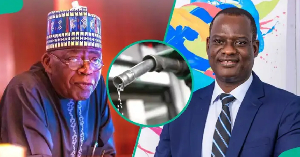The Chairman of the Presidential Committee on Fiscal Policy and Tax Reforms, Taiwo Oyedele, has clarified that the proposed 5% fuel surcharge (tax) will not be introduced until Nigeria’s key economic indicators, such as the naira's exchange rate and global crude oil prices, show significant improvement.
According to The Sun, Oyedele made this announcement during the Haulage and Logistics Magazine Conference & Exhibition held in Lagos on Thursday, October 30.
He explained that while the proposed surcharge is a well-designed fiscal policy aimed at funding road maintenance and infrastructure development, implementing it now would further burden citizens already grappling with inflation, rising transportation costs, and the aftereffects of fuel subsidy removal.
“The idea itself is sound and has been successfully implemented in more than 150 countries,” Oyedele remarked, emphasising the need for sustainable funding for Nigeria’s deteriorating road network.
Recall that Legit.ng had earlier reported that the FG had hinted at a plan to impose a 5% tax on all fossil fuel products provided or produced in Nigeria, reported to commence in January 2026 under its new tax law.
However, the surcharge exempts clean or renewable energy, household kerosene, cooking gas, and compressed natural gas.
Many Nigerians have strongly disapproved of the newly introduced government policy, which they claim will lead to a hike in fuel prices.
FG postpones 5% surcharge pending naira recovery
Oyedele highlighted that the country has over 200,000 kilometres of roads, many of which are in poor condition, making it crucial to develop a reliable system to maintain them.
He stressed that timing and context are essential for such policies. He disclosed that the Federal Roads Maintenance Agency (FERMA) had earlier proposed beginning the collection of the surcharge immediately after the fuel subsidy removal to generate funds for road repairs.
The committee, however, rejected the request, arguing that Nigerians are already facing immense economic pressure.
He stated that imposing a surcharge at a time when fuel prices are already high would only worsen inflation and make basic transportation more expensive.
According to him, the appropriate time to consider the policy would be when the naira appreciates or when crude oil prices decline, ensuring that the additional levy does not translate into higher pump prices for consumers.
Oyedele said:
"For me, the right time will be when the naira strengthens or crude prices drop, so the surcharge won’t raise pump prices.”
Oyedele concluded by reaffirming the government’s commitment to balanced fiscal reform, assuring citizens that every proposed tax measure would prioritise economic stability and the welfare of Nigerians.
Business News of Saturday, 1 November 2025
Source: www.legit.ng
Tinubu's tax chief, Taiwo Oyedele, announces when 5% fuel surcharge will start
Business












